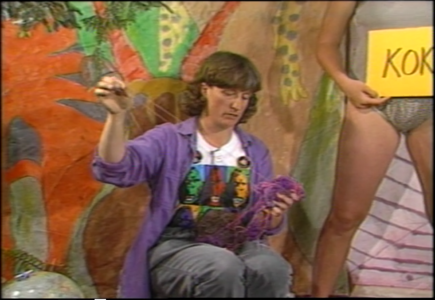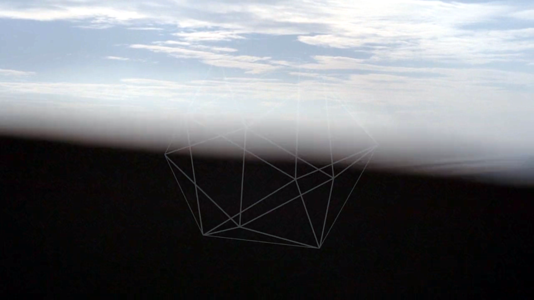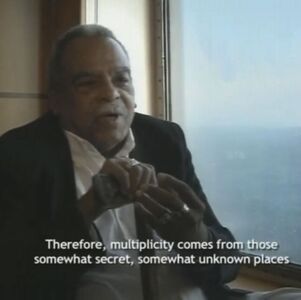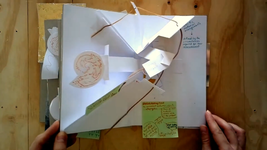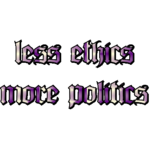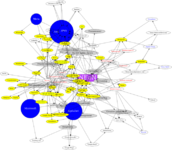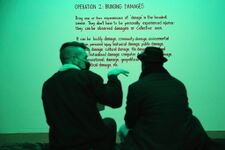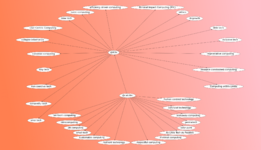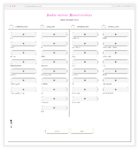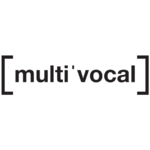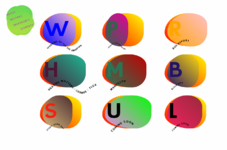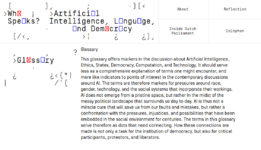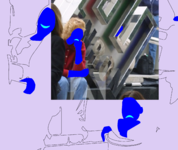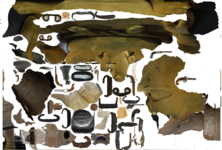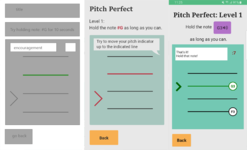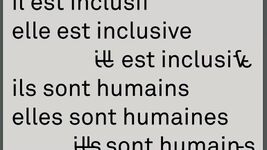Category:Implicancies
Radio Implicancies
Radio Implicancies is about practicing interdependencies. About how to stay with the complex entanglements between the personal, the economical, the political and the computational. About thinking, using and making technology with mutual relations in mind.
Donna Haraway Reads “The National Geographic” on Primates, Paper Tiger TV
But if everything is mixed up with everything else, where do you start? Does it ever end? What does it mean to mean to say “stop” or “cut”? And how could anything change? Radio Implicancies invites you to experiment with practical and theoretical propositions by feminist, non-binary, queer, anti-colonial and other disobedient researchers/practitioners who each in their own way tug at the threads of techno-ecologies.[1] They crack jokes and demand the impossible but also pay attention to feelings of discomfort and despair. From and with them we learn about things like refusal, diffraction and figuration and about the openings these might make for imagining technology otherwise.
I borrowed the term “implicancies” from Denise Ferreira Da Silva and Arjuna Neumann. Their film 4 Waters: Deep Implicancy is a poethical exploration of rivers, histories, volcanoes and schools of thought that flow together.[2] The “Deep implicancies” in the title signals the entangled responsibilities for maintaining colonial hierarchies between what and who is considered to be of value or not. The film argues that to change this, we first of all will need to displace the logics that make extraction, disposession, and segregation work. In an e-mail conversation with Neumann, Da Silva explains that she therefore prefers the term “deep implicancies” over “entanglement” because to her, entanglement is still informed by the possibility of separation, of de-tanglement or a return to a moment before the knot was made.[3] This is the challenge we face: how to deal with deep implications and being implicated without falling into the trap of undoing and restoring; of falling for the promise of fair algorithms, good data and zero carbon technologies.
Radio Implicancies is an occasion to figure out routines for starting with small things, while keeping bigger structures in mind.[4] Together we’ll test ways to hold complexity by releasing often and early.[5] We’ll experiment with (and think with) ... other computing, alternative orders, queer analytics, affective infrastructures, multiple voices, iterative listening, performative recordings, collaborative annotation, rehearsing improvisation. Let's take a deep breath and ... start from the middle!
How does this work
Radio Implicancies starts on Tuesday April 12 and from that moment on, we will publish a soundfile every week. This edition of Radio Implicancies is actually not a live broadcast but a series of eight audio-zines. In a way, Issue #18 is launched every week.
To make a collective environment for sound-production and listening together, we will start building a studio in the first week of the project. For hosting and contextualize the audio-zines, we will also need a basic web-platform. The soundfiles themselves can be created by any means necessary, i.e. you are invited to experiment with different protocols and editorial approaches: readings, DJ-ing, artificial voices, hardware experiments, field recordings … they can be live-on-tape (recorded from live sessions on Tuesday or earlier) or produced otherwise.
Every Tuesday morning, we will take time to listen to the soundfile-in-the-making in the studio. Testing out processes for working together is crucial, so we will keep rotating care-taking roles (coordinating the recording, technical support, preparing materials for publication etc.).
In addition to input by Femke and guests, Manetta, Michael, Joseph and Steve also provide input, feedback and support for your ongoing technical and conceptual work. In the second half of the project, guests will join to propose an exercise, a question, something to read or a discussion. Throughout regular tutorials and group sessions we will build a shared repository of playlists, routines, keywords, references, formats and resources.
Ajayeb’s edges, pop up book, Sina Seifee
Counter Cloud Action Plan, TITiPI for NEoN
A pluriverse of local worlds, Marloes de Valk
Radio-active Monstrosities, Angeliki Diakrousi
The Hidden Life of an Amazon User, Joanna Moll
multivocal: "explores representation, identity and aesthetics of synthesized voices"
Who Speaks? Artificial Intelligence, Language, and Democracy
We Hope This E-mail Finds You Well, Cristina Cochior, Artemis Gryllaki, Christina Karagianni, Amy Pickles
A new browser ceremony, Martino Morandi and Zoumana Meite
Project Spectra: vocal-gender training software for trans & gender non-conforming people
Schedule
Implicants, broadcasters and caretakers
Guests + contributors
Manetta Berends, Michael Murtaugh, Steve Rushton, Femke Snelting, ...
References
- ↑ "Seems to me that the cultural critic is faced by a world that is very much like tangled balls of yarn. And that one way to approach the situation is to pull on a thread and begin to untangle the ball of meanings. And begin to trace through one thread, and then another, what gets to count as nature, for whom, and when. And how much it costs to produce nature at a particular moment in history, for a particular group of people." Paper Tiger TV, Donna Haraway Reads “The National Geographic” on Primates, 1987 https://papertiger.org/donna-haraway-reads-the-national-geographic-on-primates/
- ↑ Denise Ferreira Da Silva, Arjuna Neumann (2018), 4 Waters: Deep Implicancy https://vimeo.com/287255021
- ↑ “Deep Implicancy is an attempt to move away from how separation informs the notion of entanglement.” Denise Ferreira Da Silva in conversation with Arjuna Neumann
- ↑ “Any ‘archipelaic’ thought is a trembling thinking, it is about not-presuming, but also about opening and sharing. We do not need to define a Federations of States first, or to install administrative and institutional orders. It already begins its work of entanglement everywhere, without being concerned with establishing preconditions. As far as our relations in the Archipelago are concerned, let us start with the small things, while keeping in mind the big ones.” Edouard Glissant, Traite du tout monde
- ↑ “This well-known watchword among free software developers invites authors to forget about their complexes and to refrain from trying to produce a finished project on their first attempt. The question pertains to what ‘releasing sources’ means. Does this mean publishing source files? Adding comments to the code? Documenting them? Making the code generic in order to make it more easily reusable? This is the reason why it is preferable to publish as early as possible in order to enable others to contribute to the project, code-wise or documentation-wise…” Open Source Publishing (OSP), Relearn, http://osp.kitchen/api/osp.writing.relearn/5e0cdc51d618e150a67af0f18c21823afa17fa28/blob-data/EN_17-04-18-book.pdf
Pages in category "Implicancies"
The following 19 pages are in this category, out of 19 total.
S
Media in category "Implicancies"
The following 4 files are in this category, out of 4 total.
- Catalogue.png 1,595 × 1,077; 6.58 MB
- LiveplayerDiagram02.png 1,920 × 628; 184 KB
- Plotofherundoing SaidiyaHartman.pdf 0 × 0; 57 KB
- Screenshot from 2020-04-14 12-00-26.png 1,366 × 768; 872 KB

